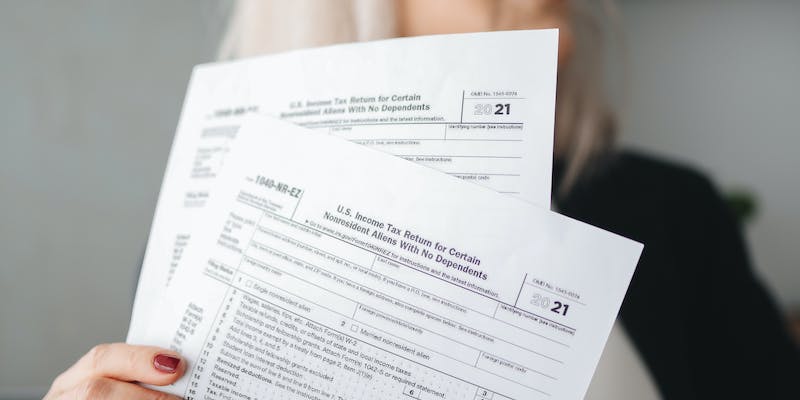Your adult responsibilities include tax returns. However, it must be completed despite its high level of anxiety. Not filing taxes has what consequences? We provide a brief, data-backed explanation of the consequences of not filing your taxes.
Penalties and Interest
When you miss the deadline for IRS tax filing, it's not just a matter of a delayed submission. The Internal Revenue Service (IRS) applies specific penalties and interest to encourage timely tax compliance. These financial consequences can add up quickly, making it vital to understand and, where possible, avoid them.
Failure to file taxes by the due date or extended deadline triggers the penalty if you registered for an extension. For every month your tax return is late, this penalty is 5% of your unpaid taxes. The cap for this penalty is set at 25% of the due taxes. For instance, a $1,000 tax debt filed two months late results in a $100 penalty (5% x $1,000 x 2). This penalty begins to accrue the day following your tax filing deadline and is applied monthly until the return is filed.
Timely tax filing doesn’t exempt you from penalties if you fail to pay the owed amount. Each month or part of a month your taxes go unpaid, the IRS charges 0.5% of your outstanding taxes, up to 25%. Delaying payment of $1,000 incurs a $5 monthly penalty (0.5% of $1,000) until the tax bill is paid.
The IRS also charges interest on both unpaid taxes and accumulated penalties. This interest is pegged to the federal short-term rate plus 3% and compounds daily from your tax payment’s original due date until full payment is made.
Losing Your Refund

When you skip tax filing, you risk more than just a slap on the wrist from the IRS. A significant, often overlooked consequence is the potential loss of a tax refund. Let's simplify. IRS allows refunds within three years of the due date. Take advantage of this window, and you will lose your refund. The IRS reported around $1.5 billion in 2016 unclaimed refunds in 2019.
The money left on the table is significant. Late filing costs more than a few dollars. The IRS states that the median unclaimed refund amounts to over $800. That's a substantial amount for most households. Furthermore, if you're a regular taxpayer used to getting refunds, imagine the cumulative loss over years of not filing.
Substitute for Return (SFR)
The IRS Substitute for Return is another critical issue. Refrain from assuming the IRS will forget about your unfiled taxes. Their tool is the SFR. The IRS files your tax return, but it may need to be more favorable.
The SFR is based solely on the information the IRS has, like your W-2s and 1099s. But it doesn't consider the various deductions or tax credits you might be eligible for. This typically results in a higher tax bill than if you had filed yourself. The IRS assumes the highest possible tax liability without considering any potential reductions.
This can have significant financial implications. For instance, if you had deductible expenses like student loan interest or eligible charitable donations, the SFR won’t account for these. Consequently, you might end up owing more tax than necessary. It's like leaving money on the table – money you could have saved if you filed your taxes correctly.
Tax Levies and Liens
When you neglect your extension tax filing duties, the IRS may resort to stringent measures such as tax levies and liens. A tax levy represents the IRS's legal seizure of your assets to cover unpaid taxes. Bank accounts, job earnings, and Social Security payments are examples. The IRS can take some of your assets or income to pay off tax debts.
However, the government can lien your property if you don't pay your taxes. This doesn't seize your property but makes selling or refinancing it difficult. You can have a lien on your home and other assets.
It damages your credit score and ability to get credit by appearing on your credit report. A tax lien restricts your financial flexibility, making it a severe consequence of not adhering to IRS tax filing guidelines.
Eligibility for Loans and Financial Aid
Neglecting to file your taxes can have far-reaching implications beyond immediate financial penalties. For instance, it can adversely affect your eligibility for loans and financial assistance. Financial institutions and aid organizations frequently require recent tax returns as part of their application process.
These documents are vital to assessing your income and financial stability, which are critical factors in determining your loan eligibility or financial aid qualifications.
Securing a mortgage, personal loan, or student financial aid without up-to-date tax returns can become significantly more challenging. A lack of recent IRS tax filing often concerns financial stability and reliability with lenders.
This is especially true for self-employed or small business owners who rely on tax returns for income. Most educational institutions require parental or personal tax returns to determine grants, scholarships, and loan eligibility.
How To Avoid Consequences of Neglecting to File Your Taxes?

The IRS offers several practical solutions if you're grappling with tax payments. These options cater to diverse financial circumstances, ensuring taxpayers can manage their obligations effectively.
Payment Plans
The IRS facilitates extension tax filing through flexible payment plans. If paying your entire tax bill upfront is daunting, you can opt for short-term payment plans (up to 180 days) or a long-term installment agreement. These plans accommodate different financial situations, allowing taxpayers to fulfill their obligations without stress.
Offer in Compromise
If the total tax amount is unmanageable, the IRS offers an Offer in Compromise. This arrangement lets you settle your tax debt for less based on your ability to pay. It's an option for those in financial trouble.
Not Collectible Status
You might qualify for the IRS's "Not Collectible" status in severe financial difficulty. This designation temporarily suspends your tax payments, giving you breathing room until your financial situation stabilizes.



